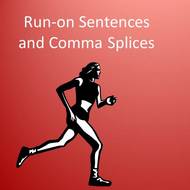Two years ago, when Vancouver hosted the 2010 Olympics, the people of Vancouver along with millions of other Canadians, were swept up in an emotional display of patriotism and flag waving they had never shown before. For the first time I can remember, Canadians were literally shouting in the streets just how proud they were to be Canadian.
I don't want to say that Canadians didn't consider themselves lucky to live in this youthful land of promise before the Olympics.
It's just that we had never been the kind of people who had flag poles in front of our houses, or who took every opportunity possible to tell people what a great country we lived in, and how much we loved it.
For some strange reason, we had always considered the Americans' flashy, flag waving, "aren't we great" love affair with their country to be in bad taste. And, something we all agreed about was that we didn't want to be seen as behaving like Americans.
After all, we had a reputation to maintain. We were the polite, friendly, reserved Canadians who didn't like making a big fuss, and who preferred to keep a low profile.
The most flashy bit of patriotism we ever displayed was in a beer commercial called "the rant." This commercial forcefully and emphatically told the world what a Canadian was AND wasn't. It was incredibly popular for while because it showed us as loud and proud Canadians. Unfortunately it was quickly forgotten as soon as it stopped being shown on television.
The Rant: "I am Canadian"
So, let's come back to today when we are proud to shout " I am Canadian" from the rooftops.
Tomorrow, on July 1st, we will celebrate Canada's 145th birthday as a country with plenty of noise, fanfare, flag waving, concerts, picnics, and fireworks. Not only will you hear people sing our national anthem Oh Canada at the top of their lungs. you will also see people of all sizes, shapes, colour, cultural backgrounds wearing Canada's distinctive red maple leaf flag on their heads, their clothing and even their bodies. And what a glorious sight that will be!
Why Do I love Canada?
As the Heritage Canada website states, I am "proud of the nation we have built together over the last 145 years. Since the earliest days of our history, Canada has been a land of promise.
“We have built a society that celebrates achievement and excellence, while at the same time maintaining a strong respect for human rights.
“Our participation in Celebrate Canada activities brings us together, strengthens our communities, and helps us understand the significance of the citizenship we all share.”
All you need to do is look at the headlines from around the world - unrest and human atrocities, financial crises, drug cartel wars to realize that life in Canada is pretty darn good.
As I see it, Canada is a peaceful, democratic country where majority government rules and where government passes laws to help and protect ALL people - including people of all races, religions, sexuality, gender, ages and many other areas not protected in many other countries. These laws are actually enforced.
Human Rights
Canada is a country where human rights are not only respected, but built into law. It is a country that allows you to practice any religion you want, to marry anyone you want, and that forbids employers to refuse to hire you because you are female, too old or simply not good looking enough.
It is also a country where you can actively disagree with the government's policies, actions and laws as loudly and as publicly as you want, and where you can take the country to court if you disagree with some of its policies, actions or laws, One of the main protectors of these rights is the Canadian Charter of Rights and Freedoms
"Can Do" Spirit
Canada is a country known for its "can do spirit", where people are willing to experiment and take risks in education, health research, business, science, agriculture and technology. It is a country where when someone says," Why are you doing that? It can't be done." people respond with,"Why not? It's worth a try." Canadians have brought basketball, the snowmobile, the zipper. insulin, penicillin, velcro, short wave radio, the Canada Arm and countless other things to world.I am sure we will bring more.
Health Care System
Canada is a country with a government health care system that treats the poor, the middle class and the wealthy in the same way. In Canada, getting proper health care is considered a right, not a privilege . In Canada, you can have a baby, get treated for cancer, undergo a heart, lung or kidney transplant or receive ongoing treatment for any number of chronic pre-existing conditions without being afraid of going deeply into debt. Of course, all Canadians would agree that our health care system is far from perfect, and does need some fixing, but we still have one of the best health systems in the world.
Education System
Canada is also a country that has one of the best education systems in the world, and which considers "learning" to be a lifelong activity. In Canada, students from kindergarden to grade 12 do not pay anything to get a top quality education that focuses on teaching critical thinking. University students here pay considerably lower fees than in the rest of the world, and can obtain scholarships, government grants and loans to help them pay for post- secondary education if they can't afford the fees themselves.
Canada is also a place where adults can go back to school for retraining in any kind of career or profession they want as often as they want up until the day they die. In fact, if they are over 65, they don't have to pay for any education.
Canada is one of the few countries in the world that offers free second language training (English as a second language, or French as a Second Language) to immigrants who do not speak English or French well enough to get a good job.
Multiculturalism
Canada is also a country which continues to accept more refugees, particularly political refugees, from poverty stricken, or war torn countries than anywhere else in the world. We have a big heart, and we open our arms to the desperate. This is something we should value.
Hockey
Canada is synonymous with hockey and hockey is synonymous with Canada. When we were playing for the gold medal this past winter Olympics 26.5 million Canadians tuned into the game to watch it at some point. That’s 80% of the population. You don’t grow up in this country without appreciating what a great game hockey is. And if you feeling like expressing that you might not be a fan of such a majestic sport, that could be considered treason.
Human Rights
Canada is a country where human rights are not only respected, but built into law. It is a country that allows you to practice any religion you want, to marry anyone you want, and that forbids employers to refuse to hire you because you are female, too old or simply not good looking enough.
It is also a country where you can actively disagree with the government's policies, actions and laws as loudly and as publicly as you want, and where you can take the country to court if you disagree with some of its policies, actions or laws, One of the main protectors of these rights is the Canadian Charter of Rights and Freedoms
"Can Do" Spirit
Canada is a country known for its "can do spirit", where people are willing to experiment and take risks in education, health research, business, science, agriculture and technology. It is a country where when someone says," Why are you doing that? It can't be done." people respond with,"Why not? It's worth a try." Canadians have brought basketball, the snowmobile, the zipper. insulin, penicillin, velcro, short wave radio, the Canada Arm and countless other things to world.I am sure we will bring more.
Health Care System
Canada is a country with a government health care system that treats the poor, the middle class and the wealthy in the same way. In Canada, getting proper health care is considered a right, not a privilege . In Canada, you can have a baby, get treated for cancer, undergo a heart, lung or kidney transplant or receive ongoing treatment for any number of chronic pre-existing conditions without being afraid of going deeply into debt. Of course, all Canadians would agree that our health care system is far from perfect, and does need some fixing, but we still have one of the best health systems in the world.
Education System
Canada is also a country that has one of the best education systems in the world, and which considers "learning" to be a lifelong activity. In Canada, students from kindergarden to grade 12 do not pay anything to get a top quality education that focuses on teaching critical thinking. University students here pay considerably lower fees than in the rest of the world, and can obtain scholarships, government grants and loans to help them pay for post- secondary education if they can't afford the fees themselves.
Canada is also a place where adults can go back to school for retraining in any kind of career or profession they want as often as they want up until the day they die. In fact, if they are over 65, they don't have to pay for any education.
Canada is one of the few countries in the world that offers free second language training (English as a second language, or French as a Second Language) to immigrants who do not speak English or French well enough to get a good job.
Multiculturalism
Multiculturalism is more than an ideal in Canada; it's the
law. Thanks to the Multiculturalism Act, enacted in 1988 to honor the country's
English, French and aboriginal roots, Canada is home to people from more than
200 ethnic backgrounds. And in 2010 it welcomed 280,636 immigrants, according
to Citizenship and Immigration Canada..
Today, millions of us now work with with people from a wide variety of cultures who all have different accents, backgrounds and point of view about everything from child rearing to how hard we should work.
Our children attend school, play sports, take music and ballet lessons with with children whose parents come from Asia, India, the Philippines, Mexico, Eastern Europe, Africa and Russia just to name a few. These same children are increasingly marrying men and women from those different cultures and creating even more multicultural families. Today, it is not unusual to meet a Canadian teenager with four to five cultures in his or her ethnic background. My own son has never dated a Caucasian girl in his life.
Living with and mixing with people of so many different cultures has broadened our horizons and made us more tolerant and willing to accept that people from other places around the world don't necessarily think the way we do, nor should they have to.
Unlike people from many other places in the world, we don't think everyone has to be the same, or feel the same way about issues such as abortion, gay marriage, the hijab, Afghanistan, capital punishment or any other controversial issue. Of course, we do expect everyone, including immigrants, to obey Canadian laws, even if they are different than the laws of their own cultures, but this usually applies to extreme behaviours such as spousal abuse or ritual killings.
Becoming a land full of immigrants has also brought us a taste for food and music from other cultures. These days when someone asks me just what a typical Canadian meal is I have to laugh, and say it could be anything from spaghetti or sushi to pad thai or borscht. . Ethnic food has become so much part of our diet that samosas are now a staple at a pot luck meal.
Unlike people from many other places in the world, we don't think everyone has to be the same, or feel the same way about issues such as abortion, gay marriage, the hijab, Afghanistan, capital punishment or any other controversial issue. Of course, we do expect everyone, including immigrants, to obey Canadian laws, even if they are different than the laws of their own cultures, but this usually applies to extreme behaviours such as spousal abuse or ritual killings.
Becoming a land full of immigrants has also brought us a taste for food and music from other cultures. These days when someone asks me just what a typical Canadian meal is I have to laugh, and say it could be anything from spaghetti or sushi to pad thai or borscht. . Ethnic food has become so much part of our diet that samosas are now a staple at a pot luck meal.
Of course, all of this doesn't mean we are perfect. We aren't. Tensions still exist between people of different cultures and there are still gaps that need to be bridged, but for most of us, the desire and the willingness is there. We simply have to act on it a little more quickly.
Hockey
Canada is synonymous with hockey and hockey is synonymous with Canada. When we were playing for the gold medal this past winter Olympics 26.5 million Canadians tuned into the game to watch it at some point. That’s 80% of the population. You don’t grow up in this country without appreciating what a great game hockey is. And if you feeling like expressing that you might not be a fan of such a majestic sport, that could be considered treason.
Crowd of 18,000 sings Canadian anthem Oh Canada at the gold medal hockey game at the 2010 Winter Olympics in Vancouver Canada. Move the cursor to 1:16 minutes to get the song. The first part is simply cheering.
Oh Canada with lyrics
I could say a lot more, but I want to let a few others tell you why they love Canada
Read a few posts about why other people love Canada
 |
| 25 Reasons Canada Rocks |
 |
49 More Reasons You Love Canada |
Longer Posts with detailed reasons and information
- Defining Moments: What It Means to be a Canadian
- The Charter of Rights and Freedoms
- Top Ten Reasons I Love Canada
- Why I Love Canada
- Our Popular Last Names are Smith, Singh, Ng or Lee
- We're An Ethnic Hodge Podge by Azachary Kuehner
- We Are Leaders in Health by Jason Tetro
- We Could Charm the Pants Off a Moose Ashley Peoples
- Here I Can Question My Own Faith by Farzana-Hassan
- We Tickle Your Funny Bone
- Our Cup of Red Rose Tea is Half Full by Lori Guard
Just before the Olympics American Journalist Tom Brokaw taped an " educational" video clip in order to inform Americans about their neighbours to the north. Any Canadian who has watched it has felt very proud indeed that someone from another country described us so well.
I am and will always remain proud to be a Canadian. I hope those of you who have moved here from other lands and now become Canadian citizens, will become Canadian citizens within the next few years, or have only recently immigrated here fell as proud of Canada as I do and enjoy Canada Day by participating in the many festivities being organized in their own cities. .
Happy Canada Day!
Why do YOU love Canada.
How do YOU feel about this country?
Let us know how you feel in the comment box below.
Send a little love our way.
I'd love to hear from you and I'm sure my other readers would too!















